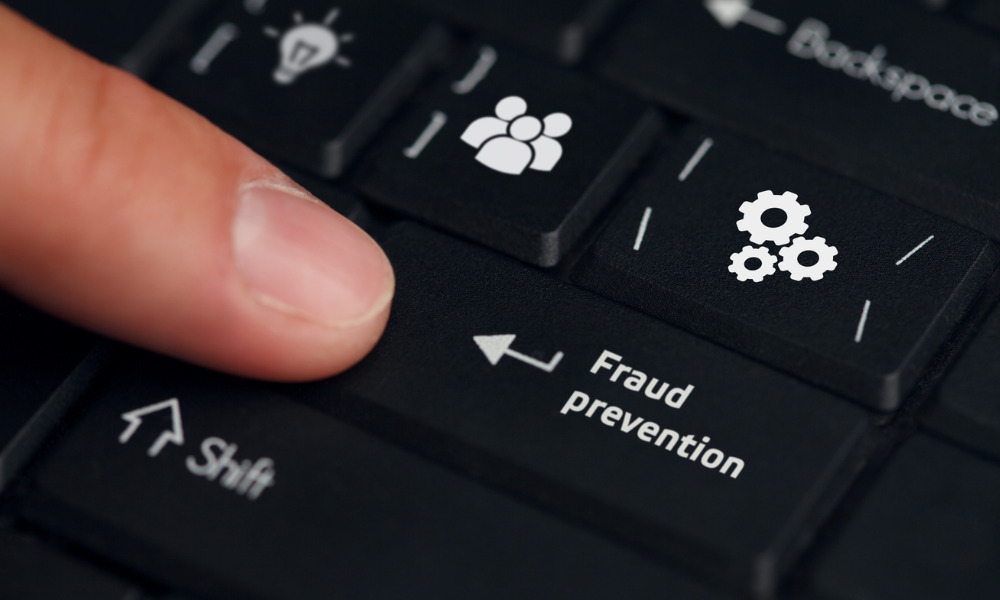SNC-Lavalin GC discusses international integrity program and continuous risk assessments

A rise in corporate crime triggered by the pandemic-driven economic crash looks set to continue for the foreseeable future, lawyers say. So, in-house counsel should brace themselves for more triggering events, investigations and COVID-related frauds.
While maintaining a strong compliance culture has always been important for legal departments, it is more crucial than ever in the current financial downturn.
“As employees gradually return to offices, compliance programs are going to be really critical for organizations as well as maintaining a strong tone from the top and emphasizing the importance of vigilance and continued ethical conduct, whether you are at home or work,” says Iris Fischer, a partner at Blake Cassels & Graydon LLP.
“In times like these when there are disparate workforces, our officers and directors should understand if and how a company’s culture is creating or reducing risk,” says Lisa Talbot, a partner at Torys LLP. “Never has it been more important to be setting an exemplary tone from the top down in terms of how business is conducted.”
Conducting a robust and regular risk assessment is essential for businesses, according to Dentons partner Anthony Cole.
“Your compliance programs can’t be bought off the shelf,” says Cole. “Each business has different types of exposure, so a risk assessment has always been to me the most critical part of prevention.” The pandemic has also created new types of risk. As employees gradually return to office spaces this year, it will be an opportune time to carry out a new risk assessment.
“If companies have already done risk assessments pre-pandemic, a critical thing to do would be dust off that risk assessment and consider whether risks have changed in terms of type and magnitude,” says Cole. Many businesses have had to make structural changes, so in-house counsel should consider the risks they face and their internal ability to respond to those risks.
“Businesses need to ask themselves if the way in which they operate as a business model has fundamentally changed, so, for example, has remote working impacted your ability to operate the compliance infrastructure that you’ve built?” says Cole.
In 2019, SNC-Lavalin settled highly publicized fraud and corruption charges over its former business dealings in Libya. Following the scandal, the Montreal-based global construction giant heavily focuses on defence strategies, including an international integrity program to prevent, detect and respond in any situation contrary to company values. Integrity ambassadors are embedded in the business worldwide to communicate the plan to employees and provide feedback to the corporate office as part of a continuous improvement culture.
“The landscape is changing, and how we work is changing with much more remote work, so we have to be adaptable and conduct continuous risk assessments,” says Charlene Ripley, executive vice president and general counsel at SNC-Lavalin. “Our program is consistent across the organization, and we use different types of internal controls to attack the various types of potential risks.” The program can detect such issues as bribery, anti-trust and anti-competitive practices. While a robust program was already in place, SNC carried out a further risk assessment at the start of the pandemic to ensure that it covered all bases in the new landscape.
“In terms of the pandemic, we always try to make sure our processes as they relate to third parties remain robust,” says Hentie Dirker, chief integrity officer at SNC. “We have to make sure that third-party suppliers and subcontractors really adhere to our values, so there is heightened scrutiny around that.”
According to the Association of Certified Fraud Examiners, as internal control weaknesses are responsible for about half of all frauds, emphasizing and enhancing reliance on whistleblower lines and other reporting mechanisms is critical in these times of uncertainty.
“Businesses should not be looking to reduce internal controls as a means to save costs because really, in the long run, a lack of control at times like these can result in losses that eclipse any cost savings associated with reducing compliance controls,” says John Fabello, a partner at Torys LLP.
Organizations should also focus on employee mental health, as unhealthy employees are more likely to lapse into misconduct. Talbot and Fabello have been recommending that clients encourage employees to use mental health and employee assistance programs and ensure they are taking vacations.
Internal investigations have also changed considerably during the pandemic crisis, so in-house counsel should have a strong investigations plan that includes considering the purpose of the investigation and the triggering event.
“The other really critical point for in-house counsel is to consider who is conducting the investigation,” says Fischer. “The most important rule is that no one involved in any of the conduct that’s under investigation should be involved in the investigation because it’s really key to maintaining the integrity and the independence of the process.”
Fischer notes that it is also important to consider who reports the person whose conduct may be in question as companies must manage many conflicts of interest. Retaining outside counsel may be advisable to deal with allegations related to the conduct of senior corporate officers, she says.
Enforcement action concerning white-collar crime will unequivocally increase this year in Fabello’s view.
“Don’t be lulled into thinking there won’t be enforcement action because there’s usually a ‘calm before the storm,’” he says.
Cole agrees. “You will not only have an increased number of new cases but you will also have a bit of a backlog on previous cases being cleared as well, so I expect it will be a busy time for the enforcement agencies.”










